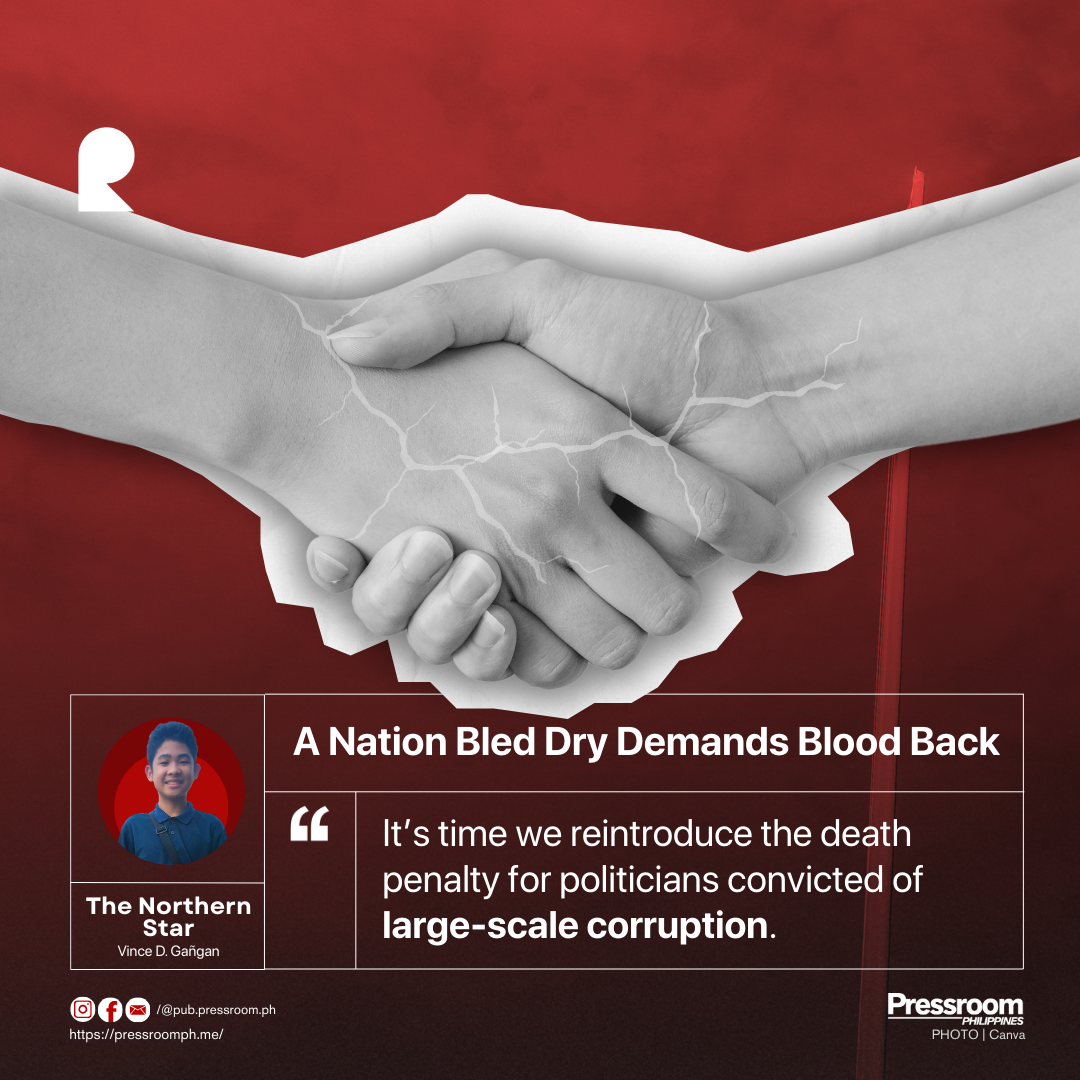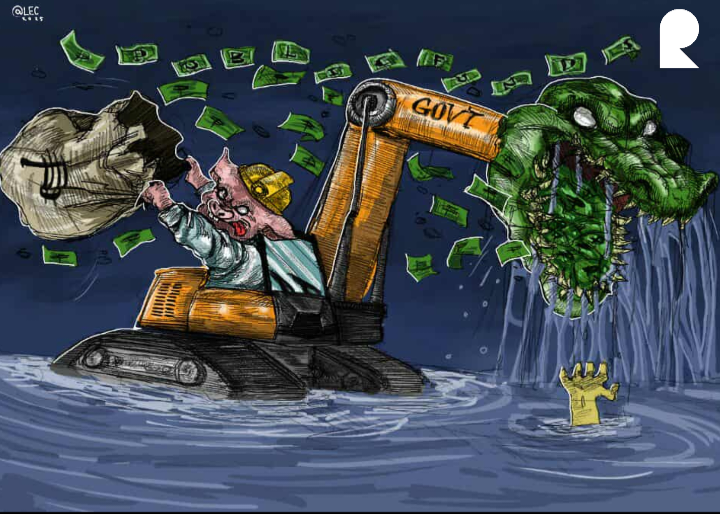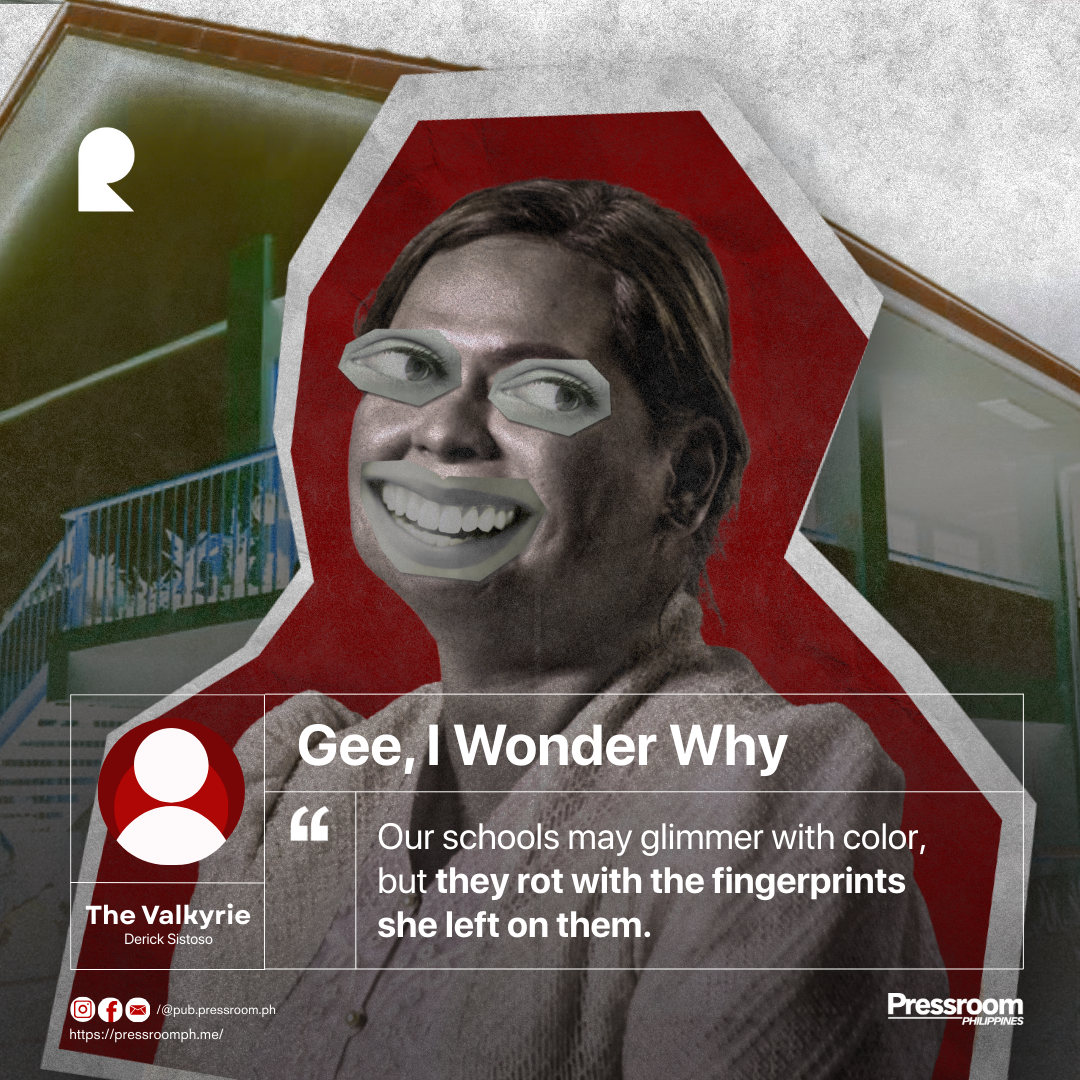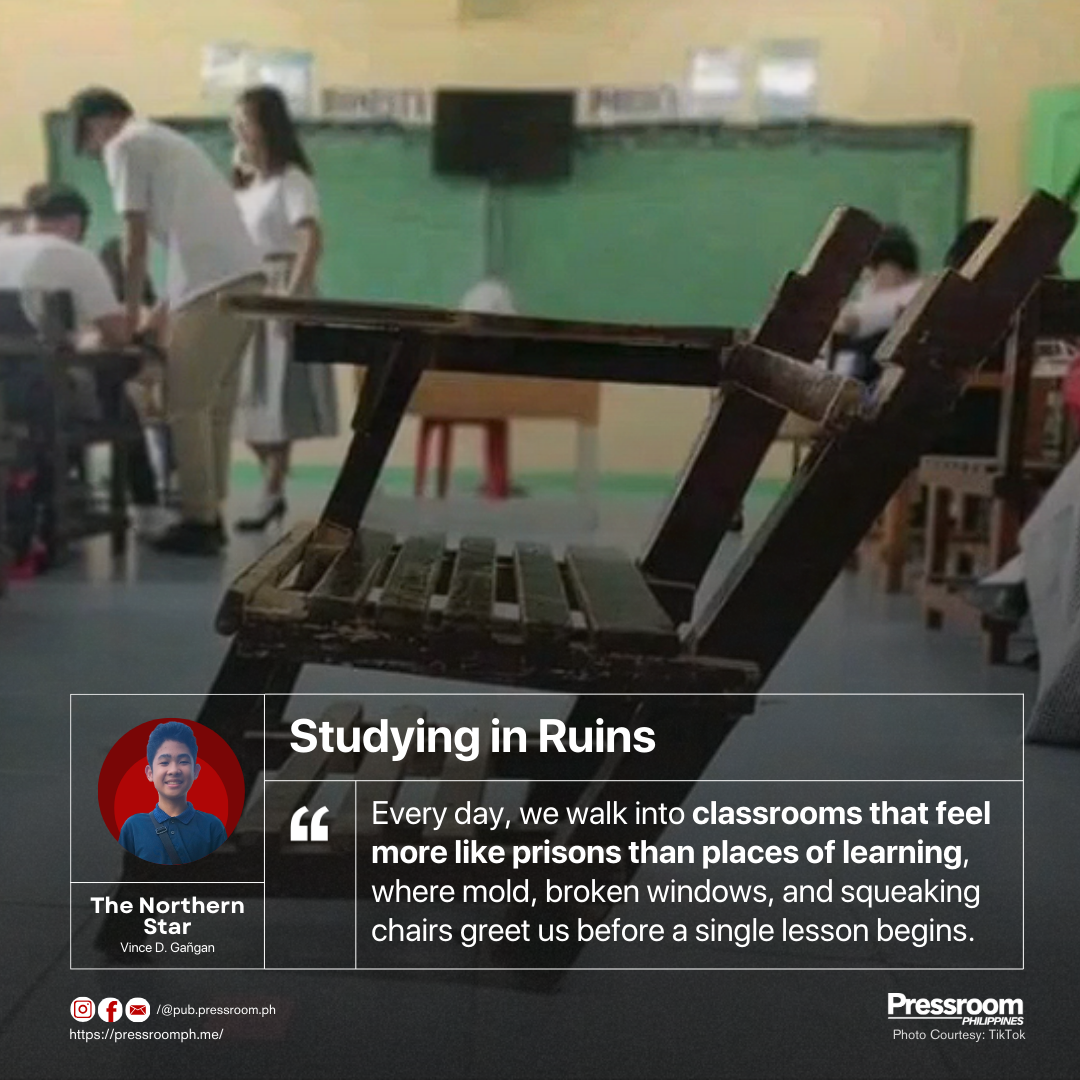Corruption in the Philippines has become so normalized that many of us barely flinch when billions of pesos are siphoned away from projects meant to save lives. But corruption is not a natural disaster—it is not a flood or an earthquake. It’s a deliberate crime by people who knowingly steal—not just money, but lives. And for crimes that cost lives, there must be a price even the richest thief cannot pay off.
It’s time we reintroduce the death penalty for politicians convicted of large-scale corruption.
Harsh? Maybe. Necessary? Absolutely. Corruption here isn’t just about missing funds or padded contracts. It kills. Every peso stolen from a flood control project is a death sentence for families who drown in their homes. Every overpriced bridge or hospital is a ticking time bomb. Corruption is bloodshed written in paperwork.
For decades, corrupt officials have toyed with our justice system. They hide behind technicalities, bribe their way through courts, and manipulate the media until their cases cool down. Meanwhile, ordinary Filipinos suffer—drowning in floods that should have been prevented, driving over cracked roads that should have been safe, and losing loved ones to disasters that could have been mitigated—if only the funds had been used honestly.
This is not petty theft. This is mass murder by neglect.
Meanwhile, the masterminds of this carnage live like kings and queens. They buy luxury cars, take trips abroad, pose for cameras at ribbon-cuttings—all while communities starve and collapse around them. They know our justice system won’t touch them. They’re right. Cases drag on for decades, sentences shrink, and prison cells become hotel suites.
Enough is enough. It’s time to put fear back into the equation. Politicians proven guilty of large-scale corruption must face the death penalty. Not only are they pocketing money; they are stealing the lives of many.
Opponents of the death penalty will cry about “human rights” and a “culture of death.” But where is their outrage when families are buried alive under landslides caused by substandard infrastructure? Where is the action needed when children die because vaccines never arrived? Protecting the lives of thieves who profit from blood money while ignoring their victims is hypocrisy of the highest order.
Some might even point their fingers to China or Singapore, arguing that executions didn’t magically erase corruption. They’re right, punishment alone is not a silver bullet. But it is a crucial piece of the puzzle. Fear of losing one’s life is a primal motivator, and for officials who treat billions like spare change, it may be the only language they understand.
The truth is, corruption is not a victimless crime. It’s murder by greed. Politicians who deliberately steal funds meant to save lives deserve to pay the ultimate price. This isn’t about revenge. It’s about justice. It’s about showing that public office is a sacred trust—and betrayal of that trust will cost us everything.
Critics may argue that executions won’t solve corruption. They won’t, on their own. But fear is a powerful motivator. Pair capital punishment with real reforms—transparent bidding, independent courts, strict audits—and suddenly, politicians will think twice before turning their office into a personal business venture.
Let’s face it, our nation has coddled its thieves for far too long. We’ve allowed them to mock the law, enrich themselves with blood money, and smile for the cameras while their crimes bury the poor. This has to end. Some people need killing.
Not out of cruelty, but out of justice.
The message must be clear—betray our country, bleed it dry, and we will pay. Because for every life stolen by corruption, the ultimate price must be paid: an eye for an eye, an arm for an arm, a leg for a leg, and ultimately, a life for a life.






